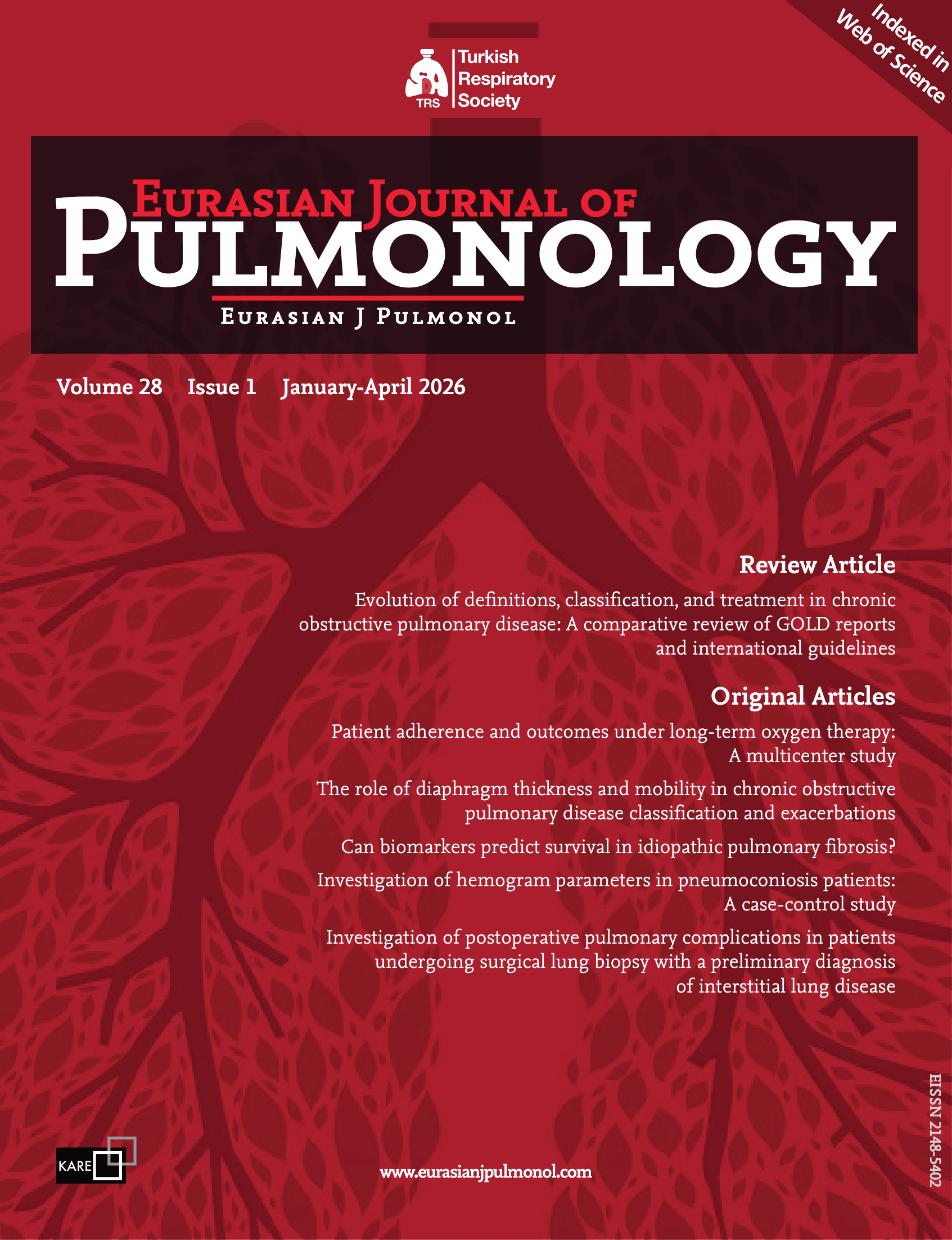Abstract
BACKGROUND AND AIM: Various markers are used to determine the prognosis of many types of cancer. We investigated the relationship of nutritional status, immunity, and inflammation markers with progression-free survival (PFS) and overall survival (OS) to predict the prognosis of patients diagnosed with small cell lung cancer (SCLC) at the time of the diagnosis.
METHODS: We retrospectively reviewed 149 patients who were diagnosed with SCLC, treated, and followed up by our clinic between 2010 and 2012. We examined the relationship between the complete blood count of patients, lactate dehydrogenase (LDH), c-reactive protein (CRP), albumin, and protein parameters, as well as neutrophil–lymphocyte ratio (NLR), platelet–lymphocyte ratio, lymphocyte–monocyte ratio, modified Glasgow prognostic score (mGPS), prognostic nutritional index (PNI), and systemic immune-inflammation index (SII) values, before treatment with PFS and OS.
RESULTS: We found a strong prognostic relationship between PFS and serum albumin, protein, CRP, leukocyte, neutrophil, NLR, PNI, SII, mGPS, and PNI score. Also, there was a prognostic relationship between OS and albumin, protein, LDH, CRP, neutrophil, NLR, PNI, SII, mGPS, and PNI score.
CONCLUSIONS: We determined that simple and easily accessible parameters representing nutritional status, inflammation, and immunity are good prognostic markers in SCLC. Predicting prognosis with these tests can guide clinicians in treatment modalities.




 Nuran Katgı1
Nuran Katgı1 




